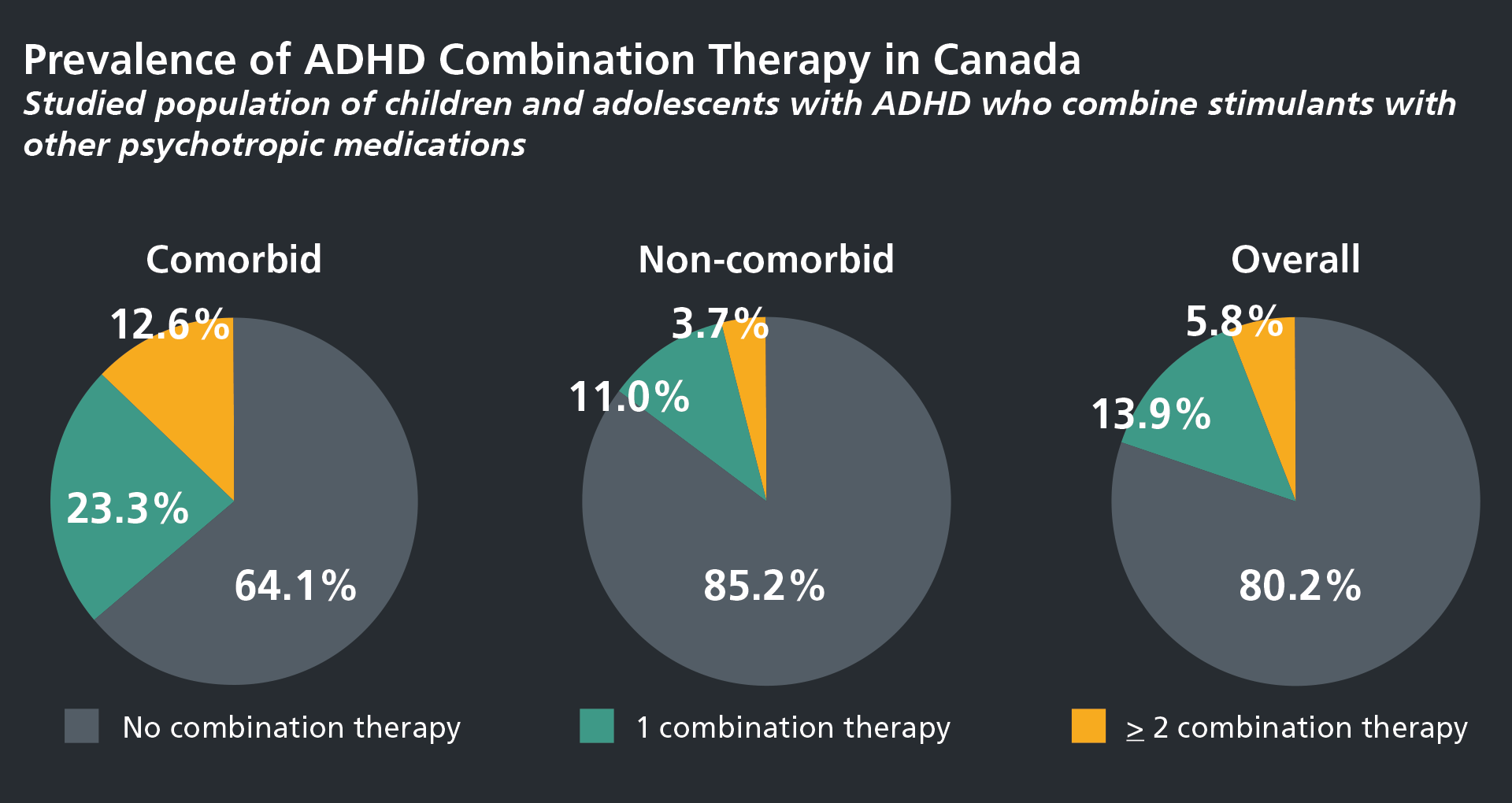Using Canadian Provincial Health Plan Claims
Medical and pharmacy administrative claims databases provide detailed information on patient eligibility, outpatient medical services, pharmacy dispensings, and hospitalizations. “Researchers use these data to assess utilization and costs, treatment patterns, and drug-specific real-world effectiveness, among other factors,” says Managing Principal
Patrick Lefebvre.
Research teams from Analysis Group recently used data from Québec’s provincial health plan, Régie de l’assurance maladie du Québec (RAMQ), to assess the prevalence of combining or switching therapies for attention deficit hyperactivity disorder (ADHD) in Canada. They found that about one in five children and adolescents combined a stimulant with another psychotropic medication or switched to a different medication within a one-year study period, and that comorbid patients – those with one or more ADHD-associated mental health or neurological conditions – were more likely to combine or switch therapies (see chart). Despite the relatively high prevalence of combination therapy observed in the current study, the majority of this use was not approved for the treatment of ADHD, suggesting there may be an unmet need in this area.

Analysis Group researchers have also used RAMQ health claims to assess the impact of generic substitution on epilepsy patients. They found that switching patients from branded antiepileptic drugs to their generic counterparts was associated with increased physician visits and hospitalizations. ■